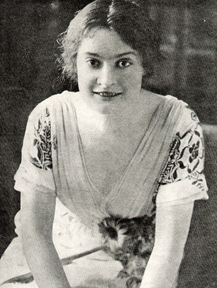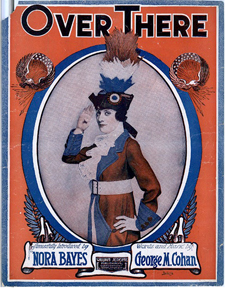 A few dozen pop culture aficionados gathered in the Bronx on Saturday, April 21, 2018, to pay tribute to entertainer Nora Bayes, who was once one of the biggest stars in America.
A few dozen pop culture aficionados gathered in the Bronx on Saturday, April 21, 2018, to pay tribute to entertainer Nora Bayes, who was once one of the biggest stars in America.
If you’re thinking you’re not familiar with Bayes, think again. You could almost certainly hum a few bars of at least a couple of her biggest hits: Shine On, Harvest Moon, which she cowrote and had a big hit with in 1908, and George M. Cohan‘s Over There, which she popularized in 1917 during the buildup to the USA’s entry into World War I.
Bayes, a popular vaudevillian and Broadway star, was a larger-than-life figure, a diva ahead of her time. One of the highest-paid women in the world at the peak of her career, Bayes, a featured performer in the Ziegfeld Follies, was a rival to Sophie Tucker, a fellow Follies performer who is arguably better remembered today.
While she was still living, Nora Bayes had a West 44th Street Broadway theatre named after her, and her life story was told in a posthumous biopic, Shine on, Harvest Moon (1944), in which she was portrayed by Ann Sheridan (Frances Langford played Bayes in the 1942 Cohan biopic, Yankee Doodle Dandy).
 Bayes’ personal life was also memorable: She married a succession of five men in an era when divorce was still scandalous (and not easily achieved).
Bayes’ personal life was also memorable: She married a succession of five men in an era when divorce was still scandalous (and not easily achieved).
When Bayes died of cancer in 1928 at age 48, fans thronged the sidewalks outside her Manhattan townhouse to watch as she was carried away in a silver casket. She was taken to Woodlawn Cemetery in the Bronx, but wasn’t buried right away; instead her remains were stored in a receiving tomb, a temporary resting place typically used only for a short period of time while burial arrangements are being made.
But arrangements for Bayes’ internment weren’t immediately forthcoming; in fact, she remained in that receiving tomb for 18 years, until 1948.
